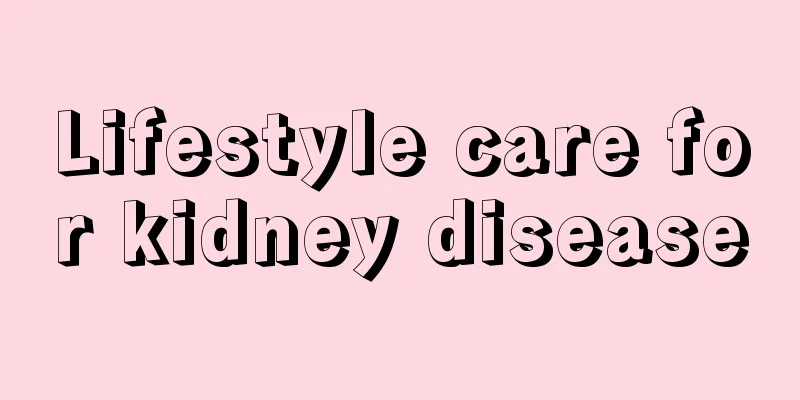How to treat peptic ulcer?

|
To put it simply, peptic ulcer is a chronic ulcer of the stomach and duodenum. It is also a common and frequently occurring disease, and the causes of its formation vary. Common symptoms include stomach acid, upper abdominal pain, heartburn, etc. Peptic ulcer can heal on its own after it occurs, but it is prone to relapse after healing. Many people suffer from it. So how to treat peptic ulcer? 1. Life Peptic ulcer is a typical psychosomatic disease. Psychological and social factors play an important role in the onset of the disease. Therefore, an optimistic mood, a regular life, and avoiding excessive tension and fatigue are very important both during the onset and remission of the disease. When the ulcer is active and the symptoms are severe, you should rest in bed for a few days or even 1 to 2 weeks. 2. Diet Before the advent of H2 receptor antagonists, diet therapy was the only or main treatment for peptic ulcers. In 1901, Lenhartz pointed out that eating small and frequent meals was beneficial for patients. Subsequently, the Sippy diet therapy came out and has been used clinically for decades. The Sippy diet mainly consists of milk, eggs, and cream, and later includes some "soft" non-irritating foods. The principle is that these foods can dilute and neutralize stomach acid for a long time. The following views are held on the diet of patients with peptic ulcer: ① Chew slowly and avoid eating in a hurry. Chewing can increase saliva secretion, which can dilute and neutralize gastric acid and may have the effect of improving the mucosal barrier; ② Eat regularly at fixed times to maintain the rhythm of normal digestive activity; ③ During the acute active period, it is advisable to eat small meals frequently, 4 to 5 times a day, but after the symptoms are controlled, it should be encouraged to quickly return to the usual 3 meals a day; ④ Pay attention to nutrition in the diet, but there is no need to prescribe a special diet; ⑤ Avoid snacks between meals and do not eat before going to bed; ⑥ During the acute active period, you should quit smoking and drinking, and avoid irritating condiments or spicy drinks such as coffee, strong tea, strong broth, chili vinegar, and drugs that damage the gastric mucosa; ⑦ Do not eat too much to prevent excessive expansion of the gastric antrum and increase the secretion of gastrin. 3. Calmness For a small number of patients with symptoms such as anxiety, tension, and insomnia, some sedatives or tranquilizers can be used for a short period of time. 4. Avoid using ulcer-causing drugs Patients should be advised to stop taking drugs that may induce or cause worsening of ulcer disease or bleeding complications, including: ① salicylates and non-steroidal anti-inflammatory drugs (NSAIDs); ② corticosteroids; ③ hemolytic drugs, etc. If the above drugs must be used for rheumatism or rheumatoid arthritis, enteric-coated formulations or small doses should be used intermittently. At the same time, adequate anti-acid treatment and enhanced mucosal protective agents should be carried out. |
<<: How to care for an anal fistula?
>>: What are the side effects of freezing point hair removal
Recommend
Can Liuwei Dihuang Pills cure chloasma
There is a saying about women that "a white ...
Is it good to bask in the sun regularly?
Is it good or bad to get too much sun? Some peopl...
The main effects of Huaqingdan
Generally speaking, gynecological diseases suffer...
How to store corn cobs
There are many ways to preserve corn cobs in our ...
The dangers of malnutrition should be noted
Although the living standards are getting better ...
What are the symptoms of pancreatic cancer
If you see a thin person with jaundice on the str...
How to treat thick white tongue coating and bad breath, why does this phenomenon occur?
Thick white tongue coating and bad breath are ver...
Why does it hurt after teeth are ground down?
Many people have the habit of grinding their teet...
How to treat stage II gallbladder cancer
Sixty percent of patients with gallbladder cancer...
How to effectively prevent lung cancer? Teach you five effective ways to prevent lung cancer
Prevention and treatment of chronic bronchitis: S...
What are the preventive measures for pituitary tumors
Due to the high pressure of work and life and irr...
Screening methods for cervical cancer
Cervical cancer is the most common malignant tumo...
Is there a high chance that prostate nodules are cancerous?
For men, physical health is not only important, b...
What are the methods for treating pigmentation
Today's women are very fond of beauty, and th...
Urinary incontinence when coughing
Urinary incontinence usually occurs in middle-age...









